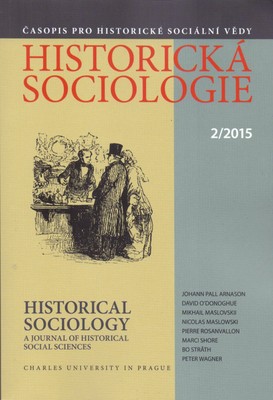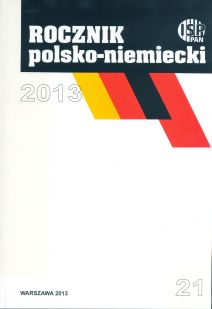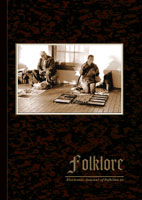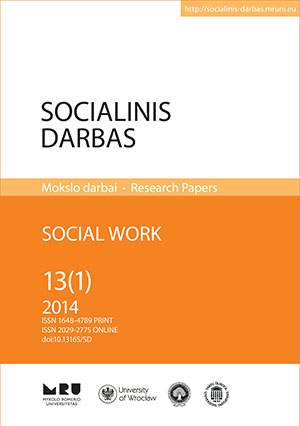
We kindly inform you that, as long as the subject affiliation of our 300.000+ articles is in progress, you might get unsufficient or no results on your third level or second level search. In this case, please broaden your search criteria.


Any attempt to reaffirm equality as a fundamental democratic value faces two tasks: it must respond to social and cultural changes accompanying the most recent phase of capitalist development, and it must reactivate the original context of the democratic transformation that brought equality to prominence, in close conjunction with other aspects of an innovative vision. At the outset, equality was interpreted in terms of “a world of similar human beings, a society of autonomous individuals, and a community of citizens”. In this context, equality was closely linked to liberty, but their interconnections were also open to historical changes. Later developments – including the shift to a more organized kind of capitalism, two world wars and the rise of a temporarily successful rival version of modernity – led to significant upgradings of equality. But during the past half-century, the case for equality has been undermined by historical trends. Mutations of the capitalist economy, on the level of organization as well as production, and the disappearance of a really existing alternative, lent support to a new type of individualism. Drawing on Simmel’s distinction between the individualism of similarity and the individualism of distinction, the present phase can be interpreted as a radicalization and democratization of the individualism of distinction into an individualism of singularity. A social-liberal strategy, aiming at a reconciliation of liberty and equality, must take this new individualism on board and understand it as a social relationship, thus maintaining critical distance from neo-liberal ideology.
More...
Isaac Deutscher, raised in his youth to be a Talmudic scholar, instead became a communist. In 1958, he addressed the World Jewish Congress on the topic of “The Non-Jewish Jew.” There was a Jewish tradition – Deutscher began, citing Spinoza and Marx, Freud and Luxemburg and Trotsky – of breaking with Jewish tradition. Jews had always been restless and rootless, always lived on the borders of various heritages, languages, and cultures, at once in and apart from society. Victimized by religious intolerance and nationalist sentiments, Jews longed for a universalist Weltanschauung. It is true that “non-Jewish Jews” played a disproportionate role in the history of European Marxism. Yet Jews’ contributions to Marxism might be understood in a larger context: namely, that “non-Jewish Jews” have played a disproportionate role in the intellectual history of modern Europe much more broadly. This essay is an attempt to place the relationship between Jews and Marxism in a larger context – less the larger sociological context than the larger intellectual context of European modernity.
More...
The conventional history of Europe, connecting the Enlightenment heritage with our time, makes a huge detour around the violent nineteenth century and the first half of the twentieth one. The article explores the European peace utopias of 1815, 1918 and 1951, and their eventual loss of suggestive force, and argues that they link today’s global Europe to the post-Napoleonic world two hundred years ago. This connection, through a series of illusions and disillusions about the nature of politics, represents a different view on the nineteenth and twentieth century than the conventional teleological narrative about fulfilment of the Enlightenment promise of progress. The analysis of the bicentenary chain of shifts between postwar, prewar and war should not be read in terms of a teleology necessitating a new war; the point is, rather to draw attention to the fragility and openness of historical processes. The new narrative outlined here emphasizes that there was no necessity in the development towards today’s Europe; the story is full of alternatives, and highlights the role as well as the responsibility of human agency. No solution appears as a necessary result of impersonal forces, everything has depended, and continues to depend, on human choice.
More...



According to Duckitt’s two process theory (2001), right-wing authoritarianism and social dominance orientation are different psychological dispositions, allowing to cope either with unpredictable, dangerous social world or a world seen as a place of continuous struggle for position. If so, while forming impressions about others, authoritarianism should direct attention to the communion related traits (in order to reduce unpleasant feelings through trust in others and group membership), whereas dominance should be connected to competence traits (to determine who is the competitor). In this research (91 university students) it was shown that authoritarianism increases inference of positive communion traits, while SDO decreases inferences of both positive and negative communion traits.. The results are discussed in terms of psychological needs behind each of the dispositions.
More...
Recent work has shown that stereotype suppression leads to depletion of regulatory resources. This effect is particularly likely to occur in people with low internal suppression motivation. In this research, we explored the impact of motivation-based prejudice reduction interventions. In two experiments, participants were randomly allocated to four conditions: thought suppression, thought suppression with induced internal or external motivation, and no-treatment condition. They performed a difficult logical and reasoning task, followed by the multi-prejudice scale task (Intolerant Schema Measure) to assess depletion. As compared with participants who did not suppress, participants who suppressed stereotype performed worse at the math task. However, participants with induced internal motivation to regulate prejudice performed better on the math task compared to participants who suppressed the stereotype. The same manipulations failed to increase explicit prejudice. These findings did not support the ego-depletion interpretation and offer evidence for an alternative explanation in terms of Brehm’s motivational intensity theory.
More...
Compensation statistics gathered by different countries demonstrate significant pay gap between men and women. There are two competing explanations for this gap. According to the human capital approach differences in men and women’s qualifications and work motivation explain the pay inequality between men and women. On the other hand, there is evidence that gender stereotypes and prejudice play a role in gender discrimination in the labour market. The goal of the current paper is to examine those competing explanations and review their empirical evidence. On the basis of this review we can conclude that the human capital approach does not explain the gender pay gap completely and stereotypes and prejudice affect the compensation of men and women. We also identified several promising lines of future research in this area.
More...
The jealousy is induced by real or imaginary experience of engagement of one’s partner in a romantic relationship with a third person, and manifests in a distress and fear of loosing one’s partner (Clanton, Smith, 1997). Buss (1992) showed that jealousy can also be a tool to sustain a partner. The importance of this is very similar to using jealousy as a specific mechanism of social influence and even manipulate the partner intimate relationship (Fleischmann, Spitzberg, Andersen i Roesch, 2005). The present study tested whether using jealousy as a tactic of influence in close relationship is associated with experience of jealousy, attachment style, psychological masculinity and femininity, self-esteem contingent on the relationship, perceived own and partner’s attraction, quality of alternatives, and the level of the components of love. Research was carried out among 141 people aged M = 28,5 years (SD = 11,93). Experience of jealousy correlated positively with readiness to use „jealousy evoking tactics”. Intimacy, commitment, and evaluation of own and partner’s alternatives were predictors of readiness to induce jealousy in the partner. Anxiety was a significant predictor of experienced and induced jealousy.
More...
Are people able to objectively evaluate fairness of the principles ruling the distribution of goods? Such principles often encourage or threaten their own interests and as such people may lose objectivity. But maybe howling injustice is evaluated positively if it is in favour of one’s interest? We present three experiments, that aim to verify the hypothesis that engagement of one’s interest distorts the evaluation of the principles of fairness of distribution of goods. Consequently, principles serving one’s interest are regarded as more just. In Pilot Study (N = 34) doctoral students considered controversial scholarship regulations to be more just when it was in favour of their own interest. In Experiment 1 (N = 97) men evaluated unequal treatment of women in job environment as just when it favoured their own sex. In Experiment 2 (N = 80) go-cart racetrack users evaluated racing rules as more just when they benefited from them, but not when they were beneficial to others. We discuss the observed effects in reference to automatic egocentrism conception (Epley & Caruso, 2004).
More...
The article presents the Polish adaptation and validation of the Multidimensional Profile of Work Ethic (Multidimensional Work Ethic Profile, MWEP; Wielowymiarowy Profil Etyki Pracy (WPEP) in Polish). Confirmatory factor analysis (CFA) was conducted to verify factor validity. The procedure of parcelling items of the questionnaire was applied. Two samples of employees were investigated: 317 participants (sample A) and 297 participants (sample B). CFA showed acceptable fit of empirical data with the seven-factor theoretical model (sample A: χ2 (df) = 454 (168), RMSEA = 0,073, CFI = 0,95; sample B: χ2 (df) = 427,77 (168), RMSEA = 0,072, CFI = 0,93). Satisfactory indicators of reliability were also received. Cronbach alpha coefficients for the Polish version scales ranged from 0,67 to 0,89. Test-retest reliability correlations ranged from 0,78 to 0,85 for five week interval between ratings. WPEP correlated with conscientiousness, organizational commitment, job satisfaction and internal locus of control. Results of the analysis conducted on the Polish samples are similar to those obtained from American samples.
More...
Aleksandra Muraj, Zagrebačka blagdanska ozračja. Slavlja, priredbe, zabave na početku 20. stoljdća, Muzej Grada Zagreba, AGM, Institut za etnologiju i folkloristiku, Zagreb, 2013., 256., 63 ilustracije Jelena Marković, Pričanja o djetinjstvu. ŽŽivot priča u svakodnevnoj komunikaciji, Institut za etnologiju i folkloristiku, Zagreb, 2012., 372 str. ““Mela jsem moc krásné detství””. Vzpomínky nemeckých obyvatel Brna na detství a mládí ve 20.––40. letech 20. století /““Ich hatte eine sehr schöne Kindheit””. Erinnerungen von Brünner Deutschen an ihre Kindheit und Jugend in den 1920er––1940er Jahren ("Imala sam sretno djetinjstvo" Sjećanja njemačkih stanovnika Brna na djetinjstvo u mladost 1920-ih do 1940-ih), ur. Jana Noskova i Jana Čermakova, Etnologicky ustav AV ČR, Praha - pracovište, Brno, Archiv mesta Brna, Brno 2013., 400 str. Hariz Halilovich, Places of Pain. Forced Displacement, Popular Memory and Trans-local Identities in Bosnian Wartorn Communities, Berghahn Books, New York, Oxford 2013., 269 str. Milošš Milenković, Antropologija multikulturalizma. Od politike identiteta ka očuvanju kulturnog nasleđa, Srpski genealoški centar i Odeljenje za etnologiju i antropologiju Filozofskog fakulteta Beograd 2014., 324 str. Ozren Biti, Nadzor nad tijelom. Vrhunski sport iz kulturološške perspektive, Institu za etnologiiju i folkloristiku, Zagreb 2012., 272 str. Marijana Belaj, Milijuni na putu. Antropologija hodočaššća i sveto tlo Međugorja,Naklada jesenski i Turk, Zagreb, 2012., 263 str. Andrew Linzey, Teologija žživotinja, Edukacijski centar Nova Arka, Stubičke, Toplice 2013., 224 str. Trapped in Folklore? Studies in Music and Dance Tradition and Their Contemporary Transformations, ur. Drago Kunej i Urša Šivic, LIT Verlag, Beč, Berlin, 2013., 222 str. Jakšša Primorac, Poj ljuveni. Pučko pjevanje u renesansnoj Dalmaciji, Književni krug, Split, 2013., 288 str. Catherine E. Foley, Step Dancing in Ireland. Culture and History, Ashgate Farnham, Burlington 2013., 264 str. Susan H. Motherway, The Globalization of Irish Traditional Song Performance, Ashgate, Farnham, Burlington 2013., XVI+212 str. Wine and Culture. Vineyard to Glass, ur. rachel E. Black i Robert C. Ulin, Bloomsbary, London, New Delhi, New York, Sydney 2013., 323 str. Peter Naccarato i Kathleen LeBesco, Culinary Capital, Berg, London, New York, 2012., 144 str. Socijalizam na klupi. Jugoslavensko drušštvo očima nove postjugoslavenske humanistike, ur. lada Duraković i Andrea Matošević, Srednja Europa i Sveučilište Jurja Dobrila u Puli, Zagreb, Pula, 2013., 360 str. Radina Vučetić, Koka-kola socijalizam. Amerikanizacija jugoslovenske popularne kulture ššezdesetih godina XX veka, Službeni glasnik, Beograd, 2012., 473 str. Andrea Matoššević i Tea ŠŠkokić, Polutani dugog trajanja. Balkanistički diskursi, Institut za etnologiju i folkloristiku, Zagreb, 2014., 187 str.
More...
Street renaming as a symbolic practice of identity politics has been studied in Croatian and other ethnologies/anthropologies in this part of Europe since the 1990s, facilitated by the so-called spatial turn in the social sciences and humanities. Academic interest in these politics of (public) space emerged with the mass renaming of streets, squares, neighbourhoods, even entire towns, which began in the 1990s, when these practices were determined by the overall transformation of the political and economic (the "transition" from socialism to capitalism) and national paradigm (the breakup of Yugoslavia and the establishment of new independent states). Being one of the many modes of novel identity and memory politics, "street spatialization" of ideology was intensively pursued (as in the earlier historical periods), with certain similarities, but also differences when compared to the other former socialist countries in Europe. Having in mind the contents and the scale of these recent interventions in the symbolic public space, one can distinguish three prevailing patterns of street renaming in the post-Yugoslav states (which were characteristic of certain countries and periods, with inevitable exceptions): partial correction of memory of socialism and modification of national narratives, comprehensive erasing of spatial marks on the recent past and substantial remaking of national imagery, and a complete break from the spatial symbolism of the previous epoch primarily serving the newest ethno-political goals. These patterns were implemented in various periods in the last 25 years, and while they might seem very contemporary and characteristic of the Yugoslav successor-states, they usually represent spatial-political practices already implemented in the earlier periods and in other European countries.
More...